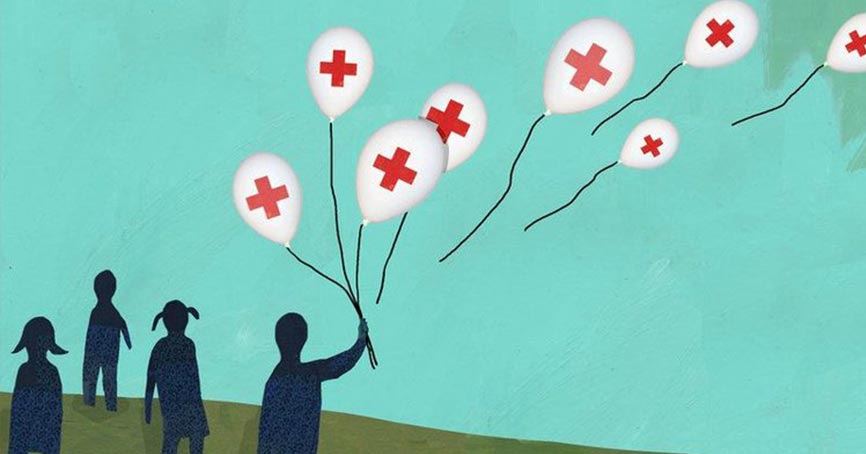What is insomnia? Insomnia is a sleep disorder affecting a large number of people all over the world. Individuals with insomnia find it extremely difficult to fall asleep, and even if they do get some sleep, it may be very difficult to stay asleep. The condition is mostly seen in teenagers and young adults and can have devastating effects on the overall health of an individual.
Insomnia affects a person to a great extent leaving them lethargic, sleepy during the day and with a general feeling of being unwell.
Some of the other common experiences of an insomniac are irritability, anxiety and mood swings. Insomnia also develops a higher risk of chronic disease in a person.
Types of Insomnia
Insomnia is a broad term that can be used in place of a wide range of sleeping disorders which result in lack of sleep, qualitatively and quantitatively.
Based on the level of symptoms, insomnia can be divided into three types-
- Transient Insomnia- Transient Insomnia is identified when the symptoms last for up to three nights.
- Acute Insomnia- Acute insomnia, also known as short-term insomnia, is identified when symptoms last for several weeks.
- Chronic Insomnia- Chronic insomnia is a severe sleeping disorder where the symptoms last for months and sometimes years in the end. However, most of the chronic insomnia cases are side effects of some other primary problem.
Causes of Insomnia
Behind any sleeping, the disorder may be a number of physical and psychological factors. The major causes of insomnia include:
- Circadian Rhythm disruption- Job shift changes, jet lag, high altitudes, excessive noise, extreme heat or excessive cold.
- Mental issues like depression, anxiety, bipolar disorder or psychotic disorders.
- Medical conditions like chronic pain, chronic fatigue syndrome, angina, congestive heart failure, acid- reflux disease, Parkinson’s, Alzheimer’s, brain tumours, stroke and a number of other conditions.
- Hormone shifts (hormones like estrogen) during menstruation.
- Other factors like parasites, genetic conditions, overactive mind, pregnancy, and sleeping next to a partner who snores.
- Medications too can lead to insomnia in some patients. Some of the medication are-
-
-
- Statibs
- Corticosteroids
- beta blockers, alpha blockers
- SSRI antidepressants
- ACE inhibitors
- ARBs (angiotensin II-receptor blockers)
- cholinesterase inhibitors
- second generation (non-sedating) H1 agonists
- glucosamine/chondroitin
Symptoms of Insomnia
Insomnia is both diseases as well as the symptom of an underlying condition. It has a number of symptoms, which, if visible, is a serious problem. Some of the symptoms of insomnia include-
- Sleeplessness during the night
- Waking up earlier than planned/ desired
- Difficulty in falling asleep at night
- Tiredness even after a night’s sleep
- Feeling tired/ sleepy during the day
- Depression, irritability or anxiety
- Lack of proper concentration
- Tension headaches
- Difficulty in socialising
- Gastrointestinal symptoms
- Worrying about sleep
- Increase in errors/ being uncoordinated
Insomnia and being sleep deprived can lead to a number of other symptoms as well. The affected person may wake up but not be fully awake and may feel sleepy throughout the day. This leads to difficulties in concentration and focusing on the underlying tasks which, in turn, leads to unproductivity.
Diagnosis of Insomnia
The doctor may start by asking the patient a few questions based on the initial problem. He may ask about the sleep patterns and medical history of the individual to identify the underlying cause.
Once the symptoms suggest insomnia, the doctor may conduct a physical examination to look for other major conditions. Besides the examination, the doctor may ask the patient to keep a sleep diary so he can understand the sleep patterns.
The doctor may also suggest polysomnography that is an overnight sleeping test that records a person’s sleep pattern.
The doctor may also conduct actigraphy, a small wrist-worn device known as the actigraph that measures the sleep-wake pattern of an individual.

 Jun 03, 2019
Jun 03, 2019
 May 30, 2018
May 30, 2018 May 10, 2018
May 10, 2018 May 17, 2018
May 17, 2018